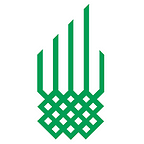Rediscovering traditional herbs and knowledge in the face of a pandemic
Long before the first cases of COVID-19 were officially announced 30th April in Tajikistan, people living in the Gorno Badakhshan Autonomous Oblast (GBAO) were already physically distancing but socially more focused than ever on mutual support.
Inhabitants of the Tingkhoon village, one of the most remote villages of Roshtkala district, were among those who went above and beyond to protect not only themselves, but also those surrounding them. One way they were able to help people is through the Village Technology Group, or “Tsakhraim,” which is made up of six farmers. Tsakhraim was established in 2018, with funding support of The Christensen Fund (TCF), to revitalize traditional ways of processing aromatic plants. The Pamir Mountains are renowned for the wealth of medicinal herbs that are found in the mountains and that have been used as homeopathic treats for centuries.
Tsakhraim, using their knowledge of these herbs and seeing the needs in the community, decided to distribute these herbs and spices free of charge to the village.
“Aromatic, remedial and nutritious plants have been widely used in daily ration among our ancestors. Considering the remedial qualities of these plants, and the fact that anxiety has seriously overcome people, with the support of Mountain Societies Development Support Programme [an initiative of the Aga Khan Foundation for which TCF provides funding support], our group decided to process and distribute spices and herbal plants (Сhamomile and Ziziphora) among poor community members. This was in support of strengthening their immune system to prevent the spread of the COVID-19 pandemic,” said Ahmad, a young farmer and the head of the group.
“Based on the traditional experience of our ancestors we use the locally available plants for preparation of spices. The main ingredients of spices consist of locally available plants, such as chamomile, ziziphora, dill, coriander, basilik, sophora flowers, fenugreek, zira, pumpkin flowers, apricot pit. All these plants are used as food,” noted Ahmad
Chamomile, well-known in much of the world, is associated with reduced stress and is considered to have anti-inflammatory and antiphlogistic properties. Local people use it for treatment of digestive system (gastritis, colitis), toothache, dermatitis and for cosmetic purposes.
Ziziphora is associated with improved digestion and is considered anti-inflammatory, antibacterial, and anti-fungal. It may also have sedating qualities. Locals use Ziziphora during arrhythmia, hypertension, gastric ulcer, gastritis, and as a breath refresher.
Both plants, along with Dog Rose, are used by locals as food supplements, either as individual supplements or in spice blends prepared by Tsakhraim.
The University of Central Asia’s Mountain Societies Research Institute recently released research about the critical role of medicinal herbs and plants to a sustainable future. For more information and to read the report, please click here.
Ahmad added: “We have distributed 8 pallets of herbal tea free of charge. We help people and people will help us. We are also planning to give out local spices to the District Psychiatric Hospital in Roshtkala.”
This seemingly small gesture of support has had a profound impact. Enhancing people’s knowledge of the plethora of local spices and herbs that are available are critical for culture preservation as well as highlighting holistic health. Providing practical techniques for utilising these herbs can help mitigate and treatment disease and strengthening the immune system.
